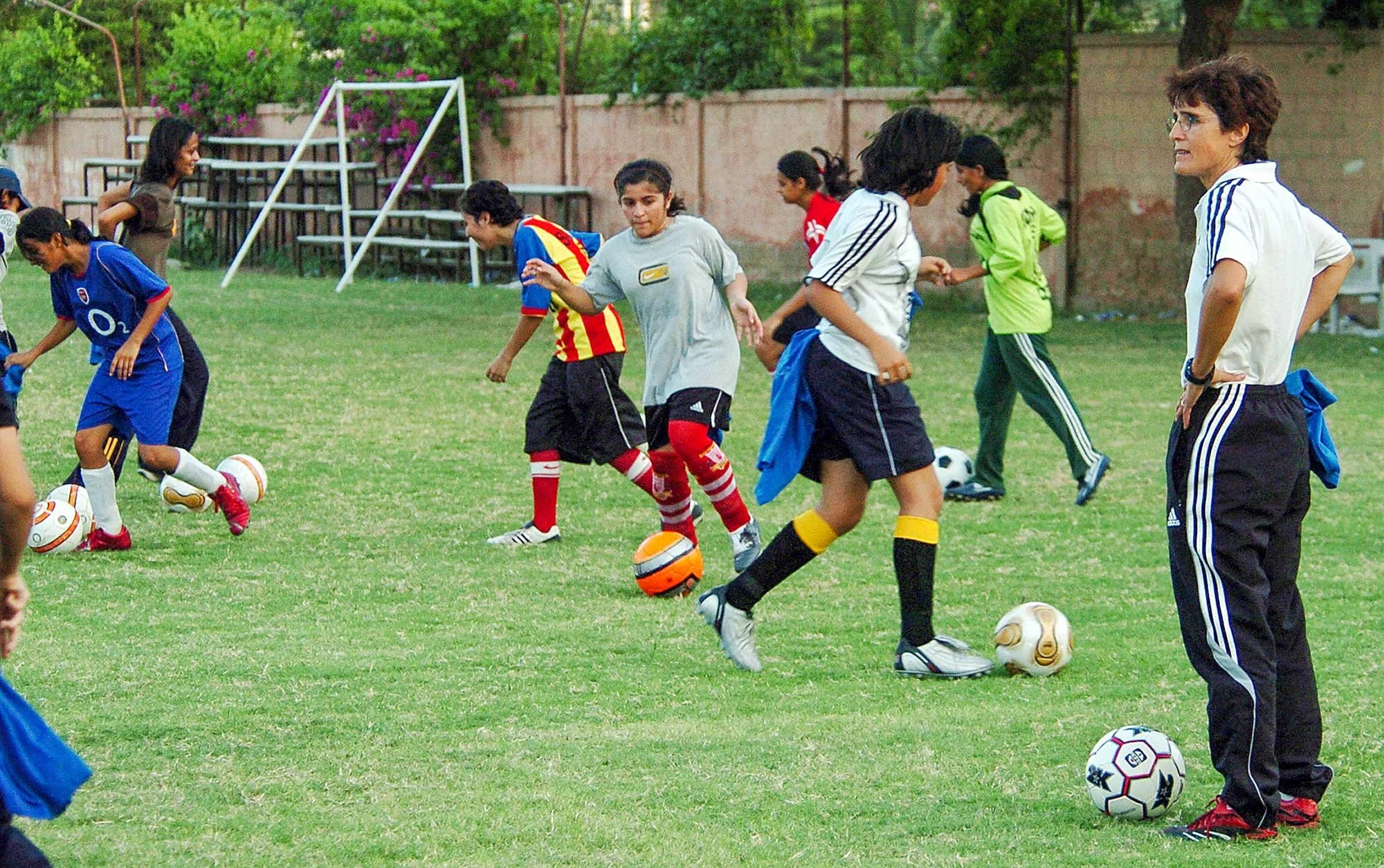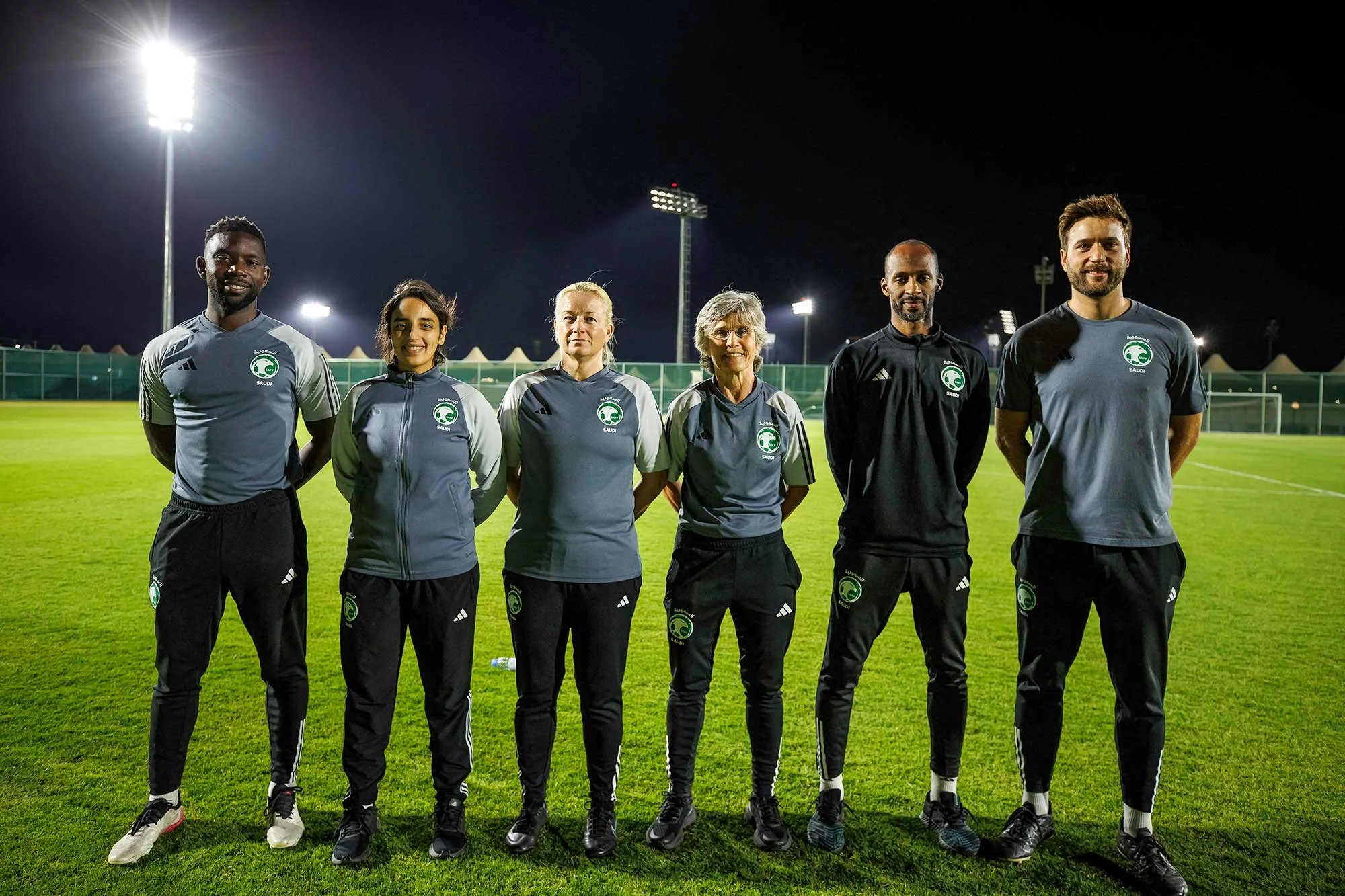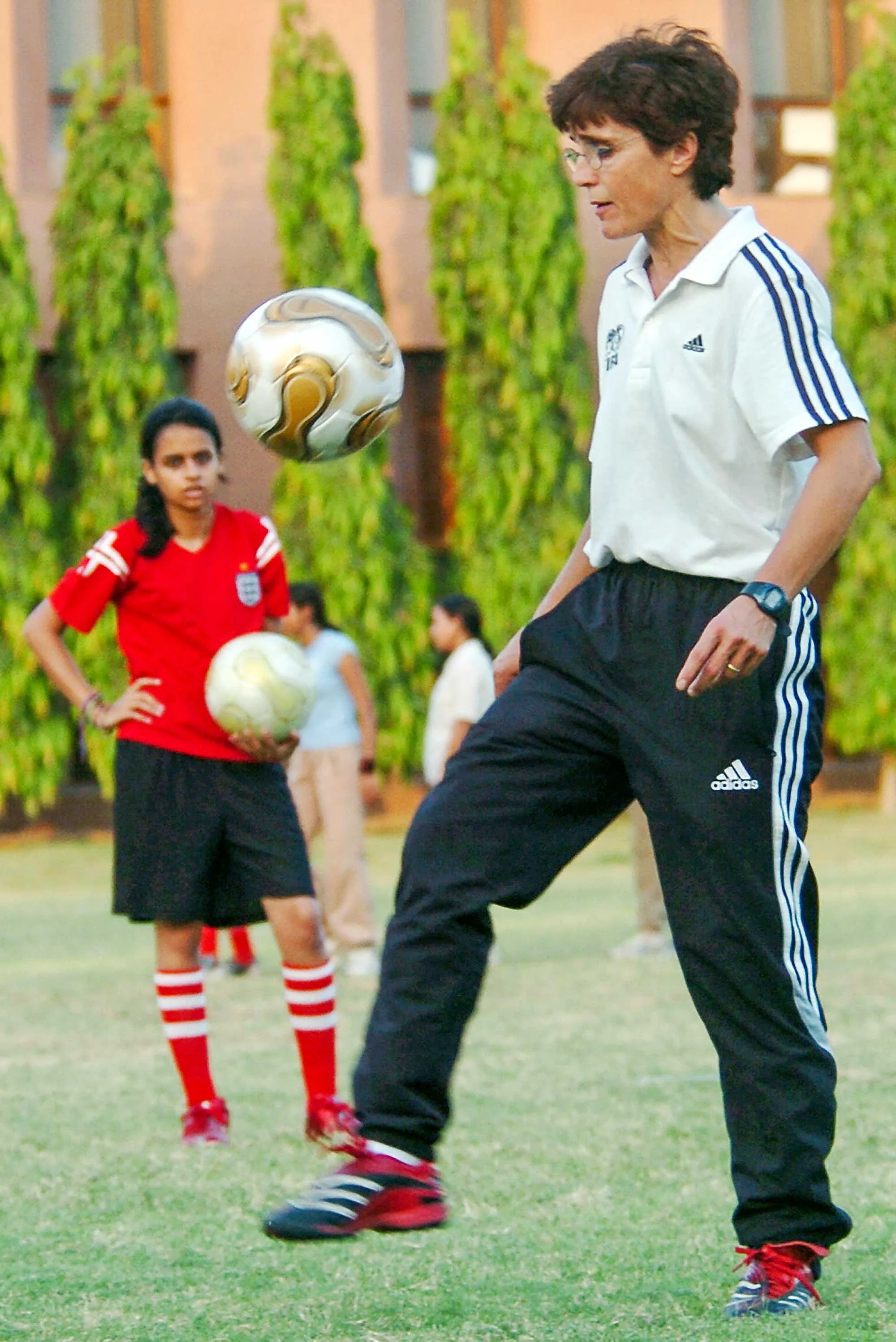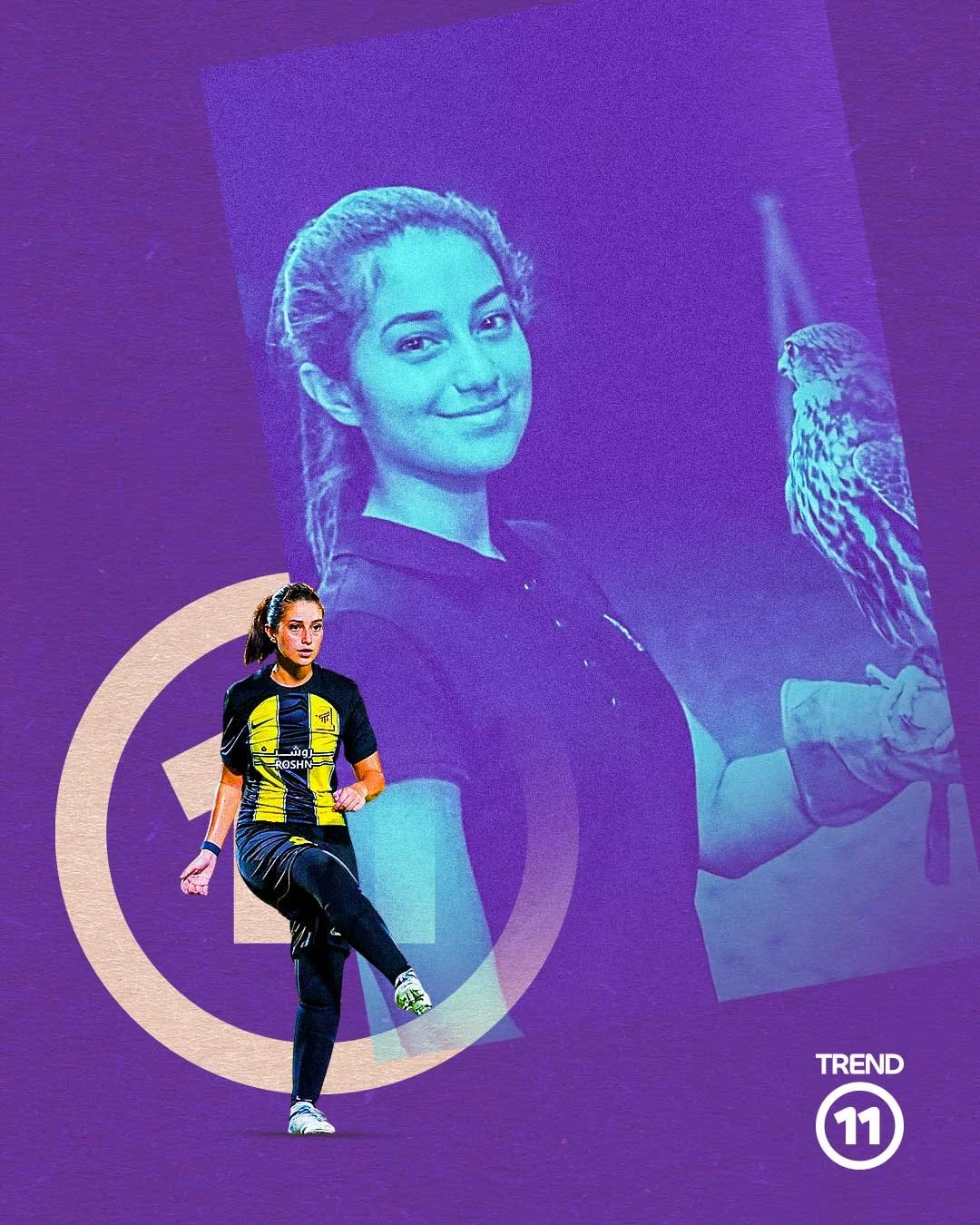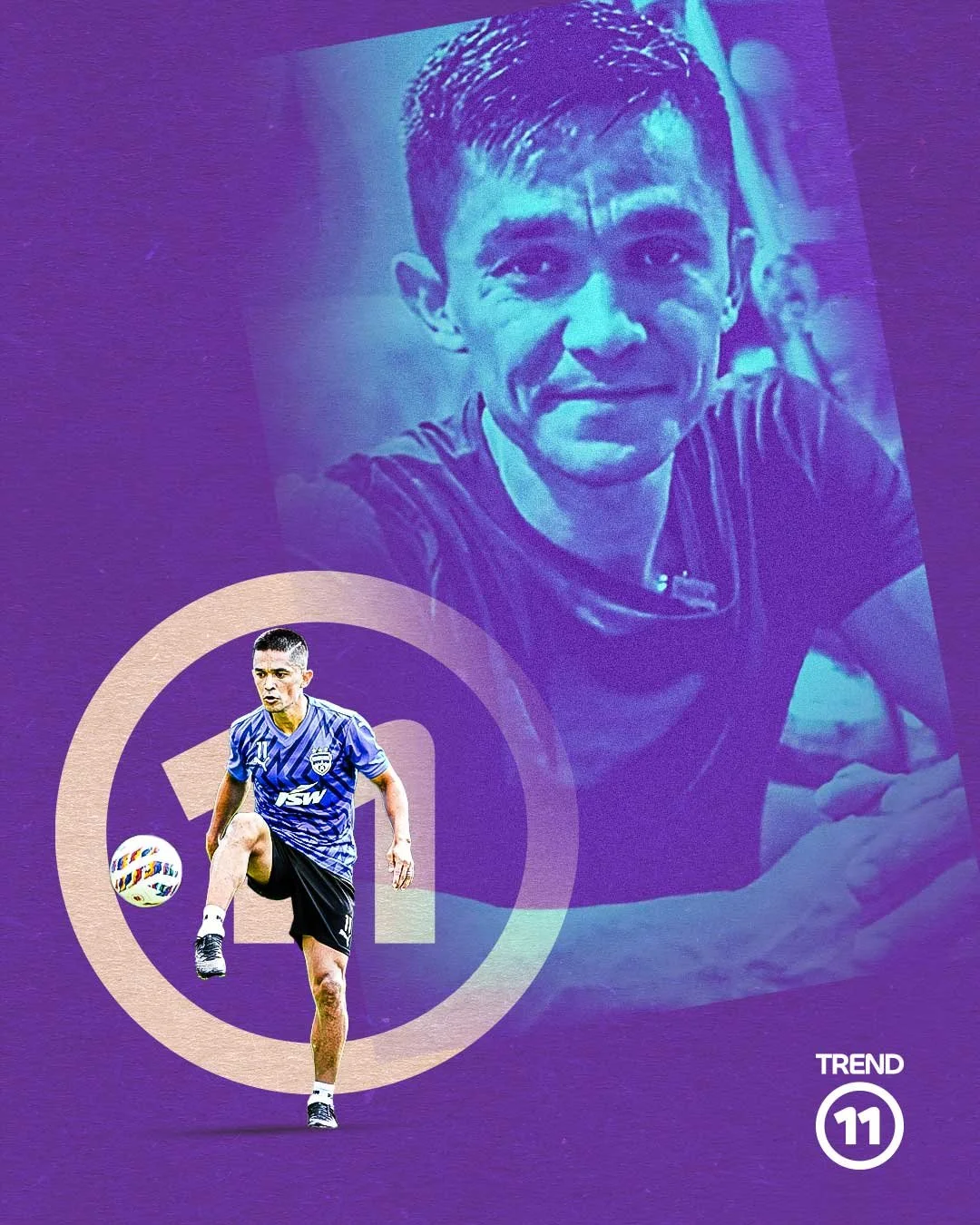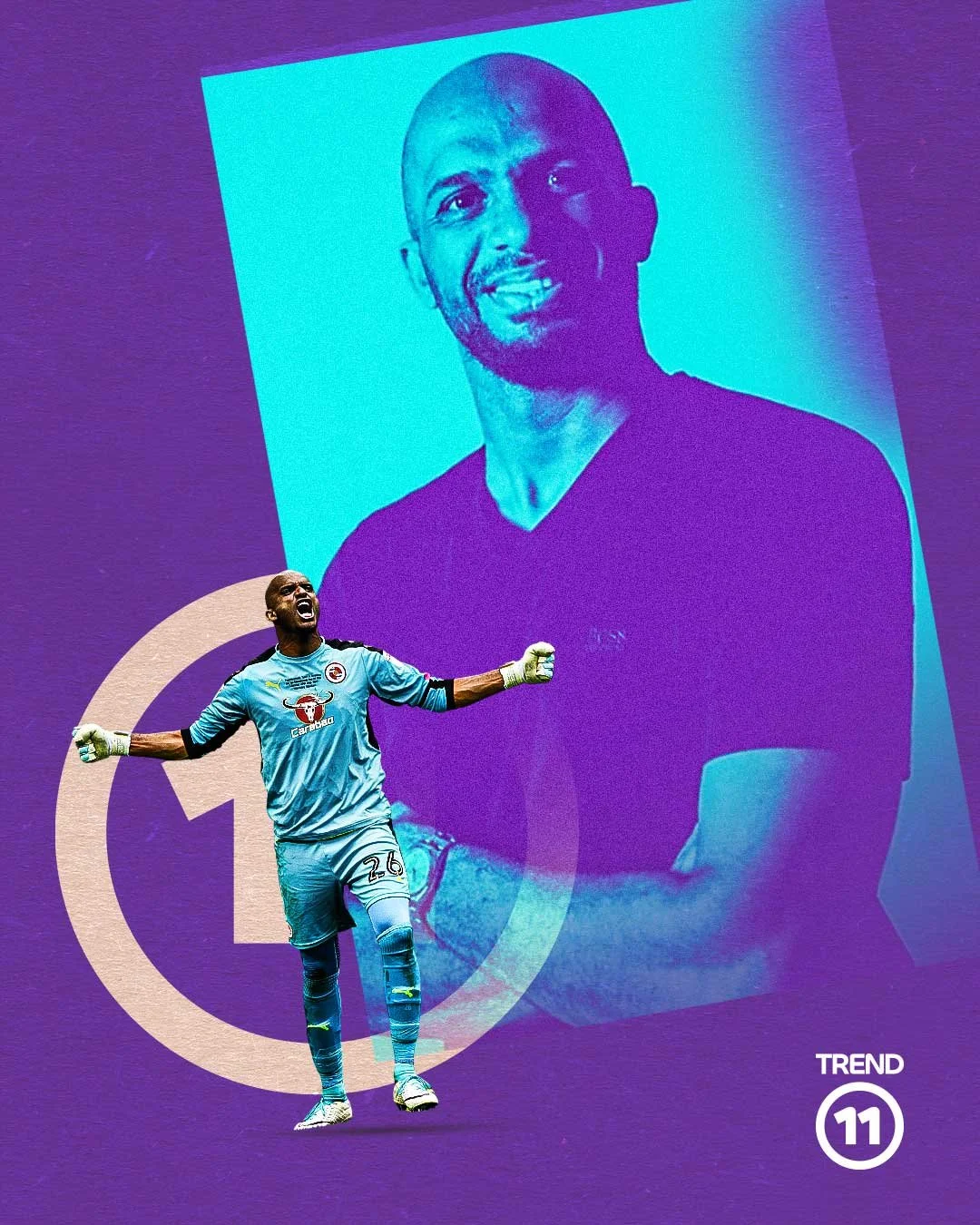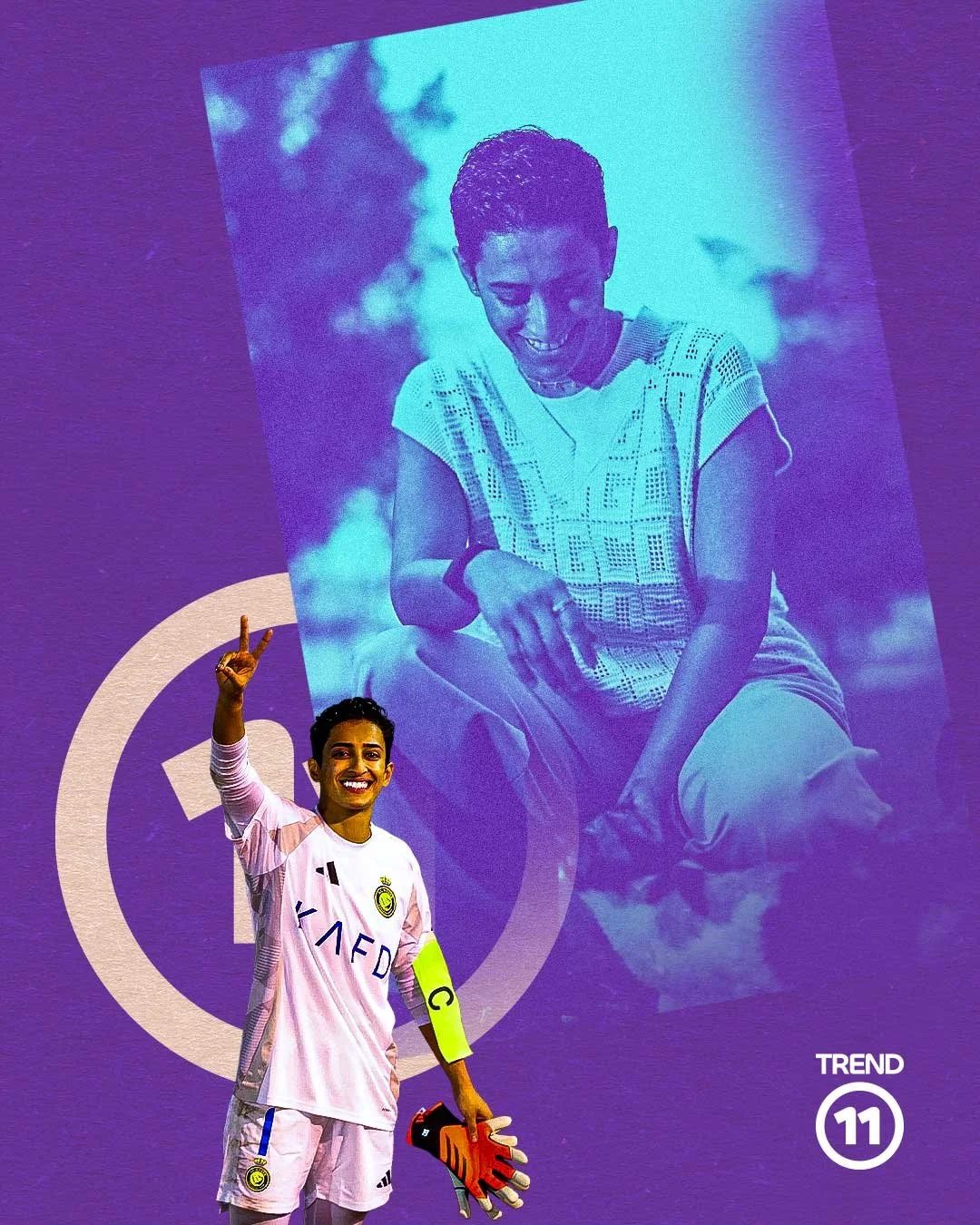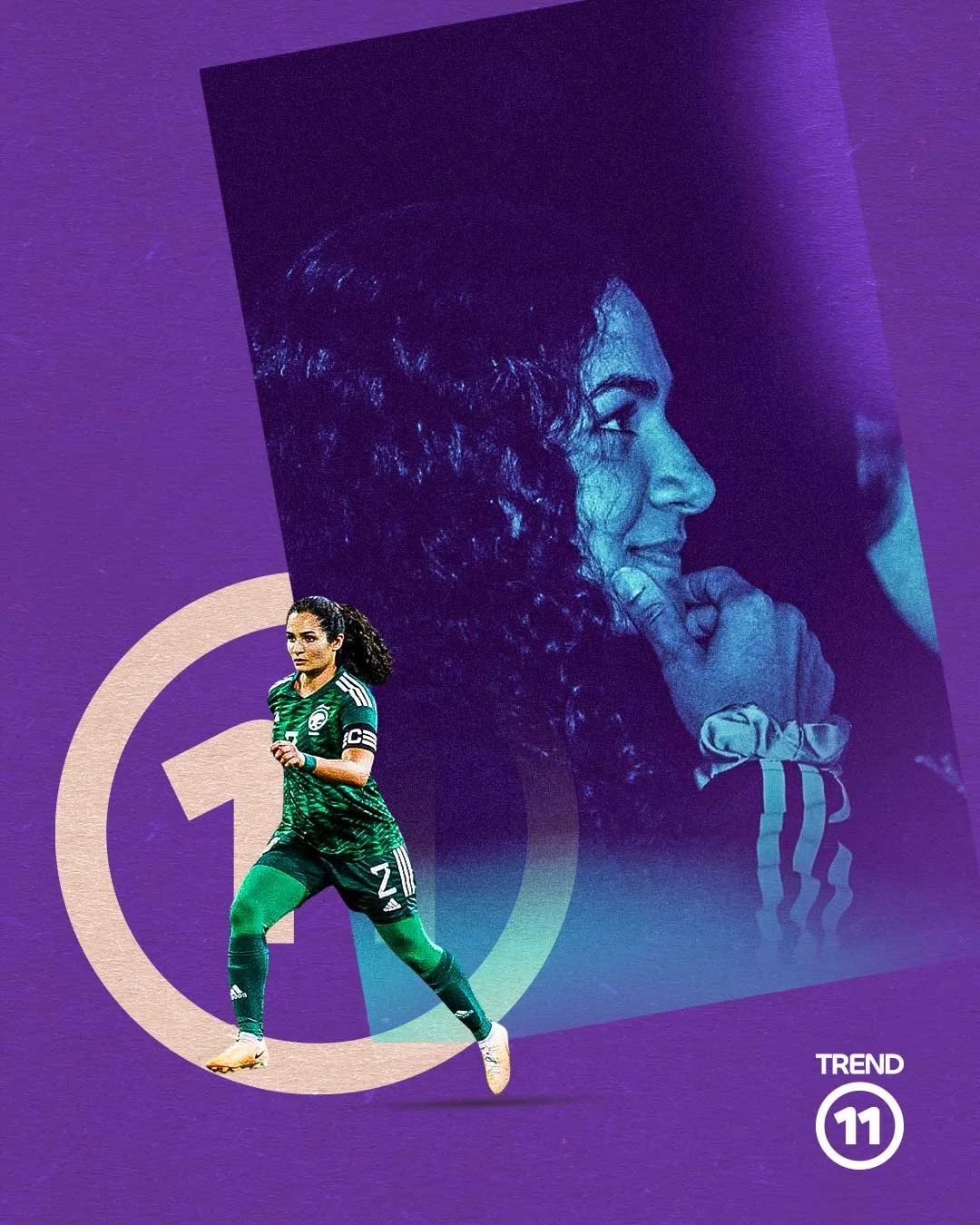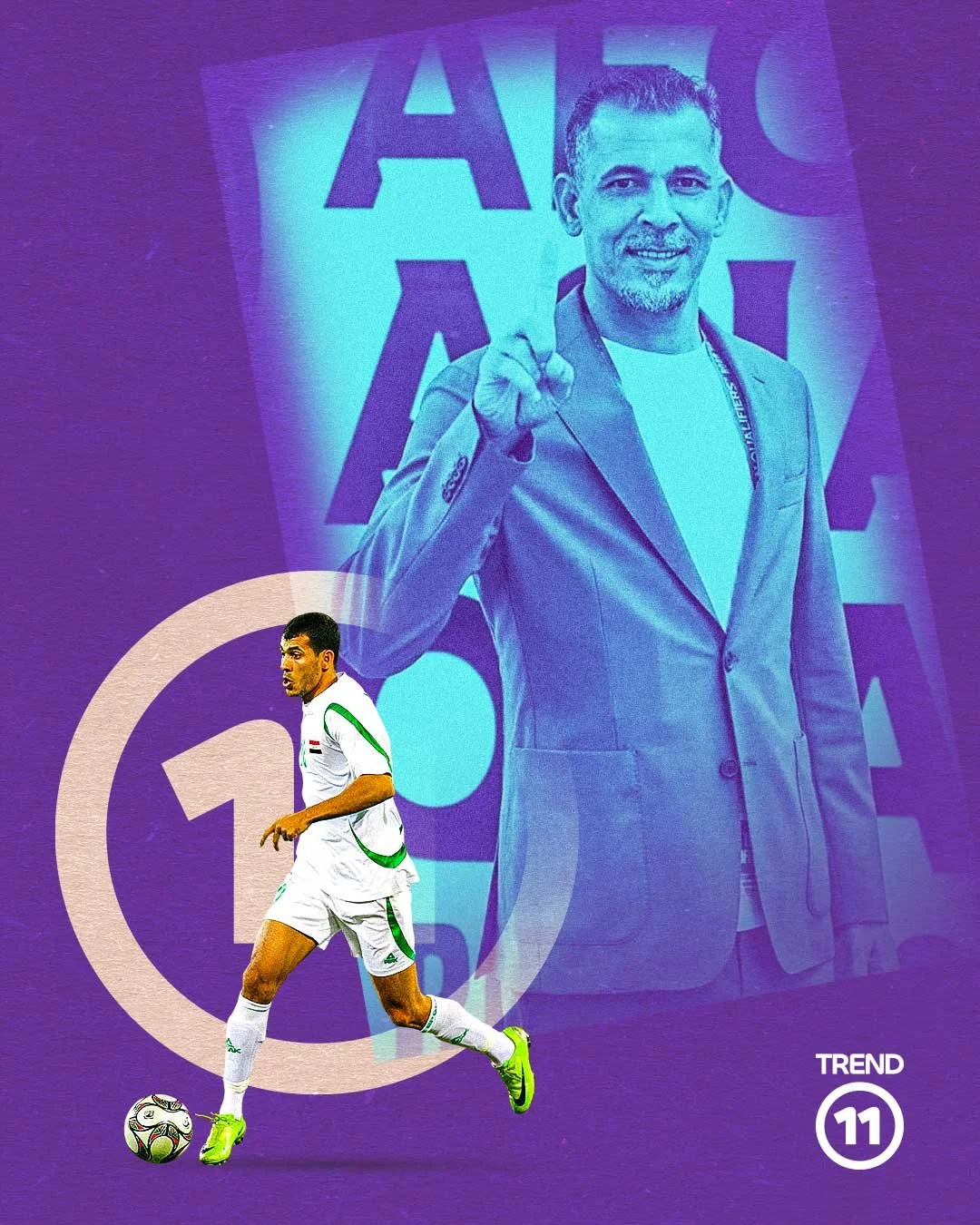MONIKA STAAB
Igniting The Spark For Women’s Football In Saudi
German coach Monika Staab is regarded as a key figure in shaping the future of women’s football in Saudi Arabia.
Her successful strategic plans and diligent efforts to promote sports culture among the younger generation, she rightly deserves a place on our Champions of Progress edition of TREND 11, presented by NEOM, the global partner of the Asian Football Confederation.
After gaining experience in developing women’s footballers in Bahrain and Qatar, Staab chose Saudi Arabia as a new hub to build women's football from the ground up when the Saudi Football Federation announced her appointment as the first coach of the Saudi women's national team in 2021.
From day one, Staab committed herself to promoting women’s football in Saudi Arabia. She embarked on this journey having worked in over 80 countries, never losing sight of her primary goal, which she articulated in an interview with FIFA's official website: “Throughout my 51 years of involvement in women’s football, the main thing for me has always been to give women the opportunity to play.
“I may not be able to change everything in people's lives, but I can give them hope. I ignite the spark, and it’s up to them to light the fire.”
Building for the Future
Staab began laying the groundwork for women’s football in Saudi Arabia by testing the girls' willingness to train at 6 a.m. She explained to FIFA: “When I arrived here, I was told we would start training at 6 a.m. The fact that fit individuals were ready to go at 6am was something I had never experienced before. Yet at 6am, 24 women showed up eager to start training.
“I looked at these women, all filled with enthusiasm, passion, and spirit, and we spent another 14 days attending a coaching course with me, and every day they were there right at 6am.”
As her journey in Saudi Arabia progressed, Staab continued to discover more talented girls. She said: “I visited 25 clubs in Dammam, Riyadh, and Jeddah, each with over 40 players, some of whom had to drive for more than two hours to attend training.
“This reminded me of the old days when we wanted to play football but had no nearby club. Back then, our generation drove two hours to training and then two hours back. All these women work or study, and none of them get paid for it. They have a genuine passion for it, and they are all convinced they can achieve their dreams.”
Staab conducted her first training session with the Saudi women’s national team, registering 700 players, a true testament to female passion for football in the country. All of them attended tryouts and underwent skill evaluations before Staab narrowed the number down to a team of 30 players. This initiated the second phase of her journey to build the future of women’s football in Saudi Arabia, which involved playing their first international match.
February 2022 became a famous month for women’s football in Saudi Arabia as Staab announced the first roster for the Saudi women’s national team. They played inaugural international matches against the Seychelles and the Maldives. The German coach made history by leading the Saudi women’s team to its first victory in its first international match against the Seychelles, the 2-0 win marking the first step toward building the future of women’s football in the kingdom.
Gradually, under Staab’s guidance, the Saudi women’s team grew stronger. This culminated in their victory in the 2023 Women’s International Friendly Championship, organised by the Saudi Football Federation in Khobar, after triumphing over the Comoros, Mauritius, and Pakistan.
Once the Saudi team had found their footing, the Saudi Football Federation promoted Staab from her coaching position to the country’s Director of Women’s Football, where she oversees all development plans.
Staab then focused on establishing a new generation of Saudi female coaches who would carry the torch forward. She led the organisation through several training courses for C and B licences, which saw over 24 Saudi female coaches graduate successfully, some of whom are now involved in clubs across the Premier, First, and Second Divisions.
Her future plans also extended to developing the Regional Training Centres under the Saudi Football Federation. In less than two years it became the largest factory for producing talents for Saudi clubs. The centres expanded to Riyadh, Jeddah, Dammam, and Medina, accommodating players aged 7 to 17, with some talents successfully reaching the starting line-up of clubs in the Saudi Women’s Premier League.
Staab’s future initiatives also included establishing the Saudi Federation Cup for Girls, which kicked off its first edition in the 2023-24 season, contributing to the formation of the first Saudi Girls’ Under-17 National Team, which is set to play several international matches.
Community Engagement
Staab emphasised the importance of engaging the Saudi community with the future of women’s football: “We have girls aged 7, 8, and 9 in this girls’ academy, training twice a week. Parents want them to train three times a week. People are ready to invest in the future here.
“I have talked to many parents, and they are all very open to the idea. In Germany, this began around 2003 when the first parents started saying their daughters shouldn’t just practise ballet; they could also play football. Why? Because we won the Women’s World Cup.”
Due to her significant role in establishing the infrastructure for the future of women’s football in Saudi Arabia, the Saudi Olympic and Paralympic Committee honoured her with the Coach of the Year 2022 award in February 2023 during the 26th regular meeting of the General Assembly held in Riyadh.
The committee noted that the women’s national team, under her leadership, achieved the title in the 2023 Women’s International Friendly Championship, marking the team’s first international title since its establishment in 2022.
Three years into Monika Staab’s plans, Saudi Arabia now boasts three women’s leagues – Premier, First, and Second – along with four national teams: the senior women’s team, the Under-20 youth team, the Under-17 girls’ team, and the futsal team, as well as a girls’ cup, a futsal competition, and a high school girls’ league, with a professional system implemented requiring Premier League clubs to sign 15 contracts for Saudi female players and 10 professional contracts for First Division clubs for the current 2024-25 season.
“I have talked to many parents, and they are all very open to the idea. In Germany, this began around 2003 when the first parents started saying their daughters shouldn’t just practise ballet; they could also play football. Why? Because we won the Women’s World Cup.”
Monika Staab
A World Cup Dream
All that Saudi Arabia has achieved to date signifies that the nation is still at the beginning of its journey, without rushing toward the dream of competing in the Women’s World Cup.
“In 10 years, they want to participate in the Women’s World Cup, and I told them to take it easy,” Staab said. “It took Germany 21 years, and you want to do it in 10? That’s not going to happen, but they have a dream.”
She believes hosting the 2034 Men’s World Cup in Saudi Arabia will greatly benefit women’s football in the country, stating in an interview with the BBC: “I believe there is a bright future for women’s and girls’ football in the kingdom of Saudi Arabia. So why not host the Women’s World Cup in 2035? We are now preparing a team to compete at that level at the very least.”
Currently, Staab supervises the work of Spanish coach Luis Curtis, who has been coaching the Saudi women’s national team since this year, allowing Staab’s journey to continue in establishing the future of women’s football in Saudi Arabia
Staab is also actively involved in charity work, aiming to promote the role of sports in the community and support girls and young women in accessing athletic opportunities. She has established educational programs designed to provide training and support for girls in underserved areas, helping empower them to engage in sports and pursue their dreams.
Staab believes that sports are a powerful means to enhance self-confidence and teamwork, and she works tirelessly to spread this message through various charitable projects she oversees.
More stories





